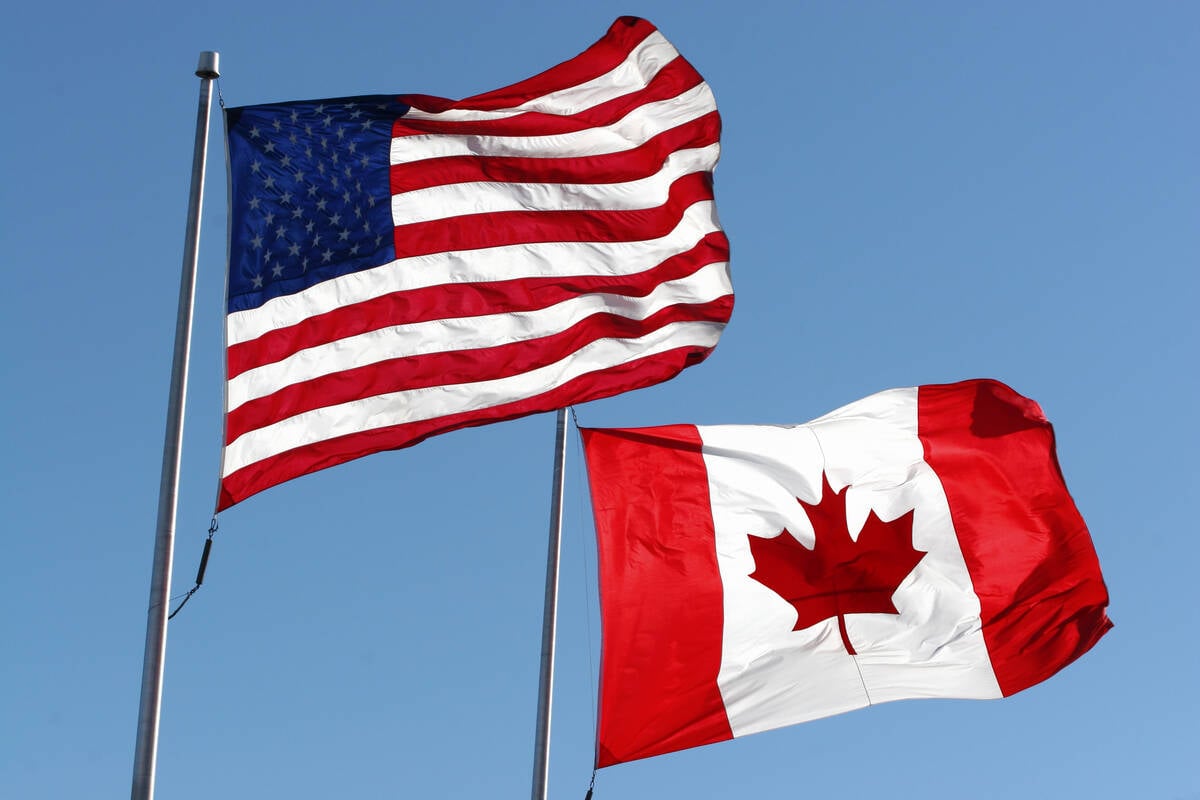The Canadian government has launched an attack on a North Dakota law that could stop Canadian grain and livestock at the border.
The federal international trade minister, backed up by the ministers of agriculture, the wheat board and foreign affairs, has asked the United States federal government to investigate a state law. North Dakota wants to ban Canadian grain if it has any trace of chemicals that are not allowed to be used by American farmers.
“We feel that the proposed law clearly violates the U.S. international trade obligations,” said Leslie Swartman, spokesperson for international trade minister Sergio Marchi.
Read Also

Trump cuts off trade talks with Canada
UPDATED: October 24, 2025 – 0910 CST – Adds comments from Prime Minister Mark Carney. Reuters — U.S. President Donald…
The North Dakota law passed a unanimous vote in the state legislature, but has not yet received governor Ed Schafer’s approval.
The law would allow state officials to demand Canadian agricultural products be certified as free of a list of banned chemicals. Any shipper with products found containing traces of banned chemicals could be fined. The law does not take effect until July 1, 2001 – more than two years away.
Ken Bertsch, the director of government relations for the North Dakota chapter of the American Farm Bureau Federation, said the law is an attack on the U.S. federal government, not Canadian farmers.
“It’s not pointed as much at Canada now as at our own Environmental Protection Agency and (White House) administration in D.C.,” said Bertsch.
A number of chemicals commonly used in Canada are banned in the U.S. Lindane, a flea beetle treatment for canola, isn’t allowed in the U.S., but is legal in Canada. Many U.S. canola growers think that gives Canadian producers an unfair advantage because Gaucho, the substitute for Lindane, is significantly more expensive.
N.D. growers want to be able to buy the same chemicals at the cheaper price Canadians pay, Bertsch said. Another state law proposes opening the Canadian border to allow North Dakota growers to bring in Canadian product.
The first law’s 2001 activation date is the same as the date Canadian and American officials have set for trying to standardize chemical approval regulations. Bertsch said the North Dakota law originally proposed immediate controls on Canadian imports, but has been pulled back to allow the U.S. federal government to do what it says it wants to do.
But that doesn’t pacify Canadian officials, who resist any attempt to clamp down on trade.
“We don’t want to be sideswiped in any dispute that the North Dakota industry might have with their U.S. administration,” said Swartman. “We don’t want to see it on the books.”
By asking the U.S. trade representative’s office for a consultation on the North Dakota law, Canadians will be able to express their opposition before any problems occur, Swartman said.
Canola Council of Canada president Dale Adolphe said he doesn’t like the North Dakota law, and doesn’t believe it could stand a legal challenge. He said international trade is a federal, not state, jurisdiction.
But he said it does show how important chemical standardization is.
“This legislation in North Dakota is a reflection of a lack of patience among farmers,” said Adolphe.
Some Canadian farmers have been trying to calm their southern neighbors.
Last week representatives of Saskatchewan Wheat Pool and Agricore met with Minnesota and North Dakota farmers to talk about these kinds of trade tensions. Minnesota is also considering legislation that would restrict Canadian agricultural goods.
“North Dakota sees most of the Canadian (vehicle licence) plates,” said pool vice-president Marvin Shauf. “What they don’t see is the trucks going back to Canada with processed goods.”















